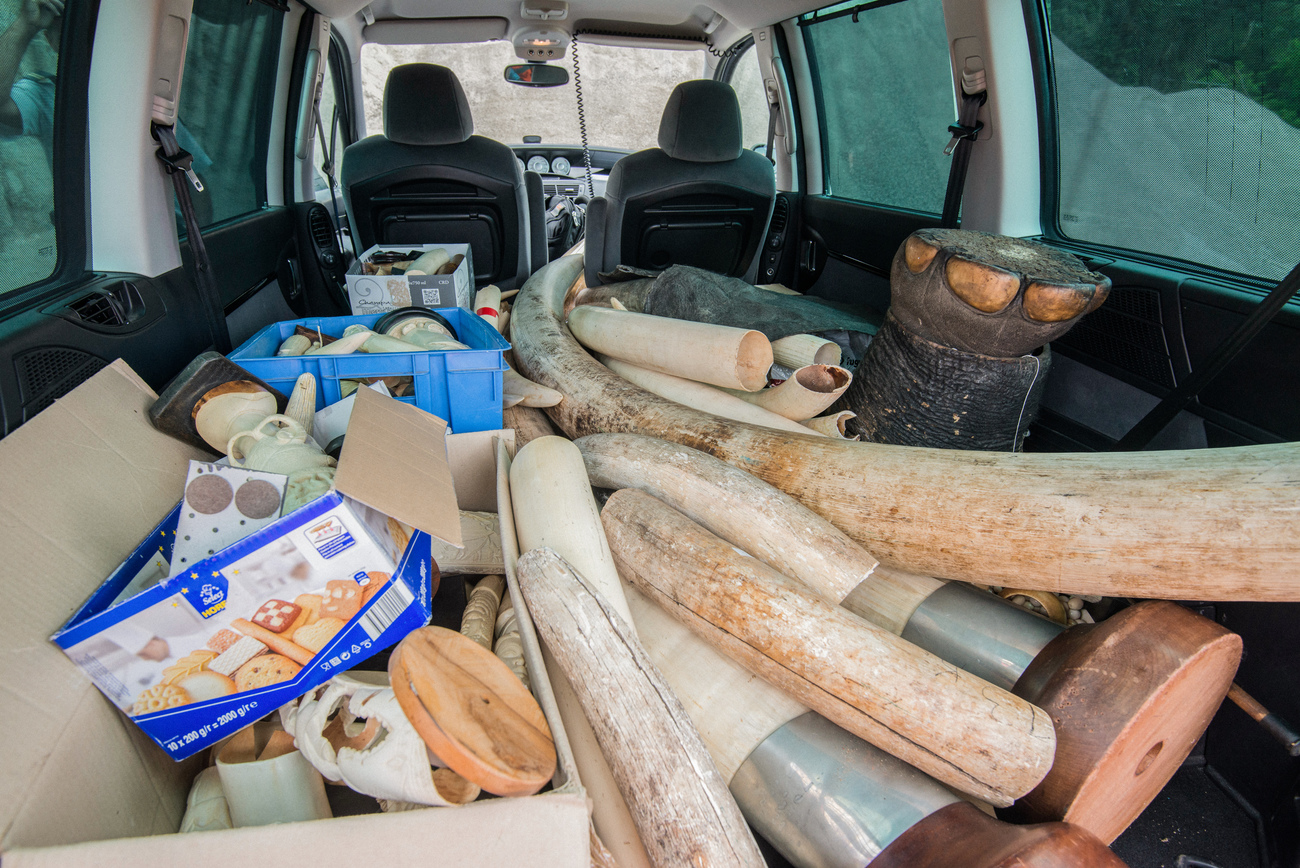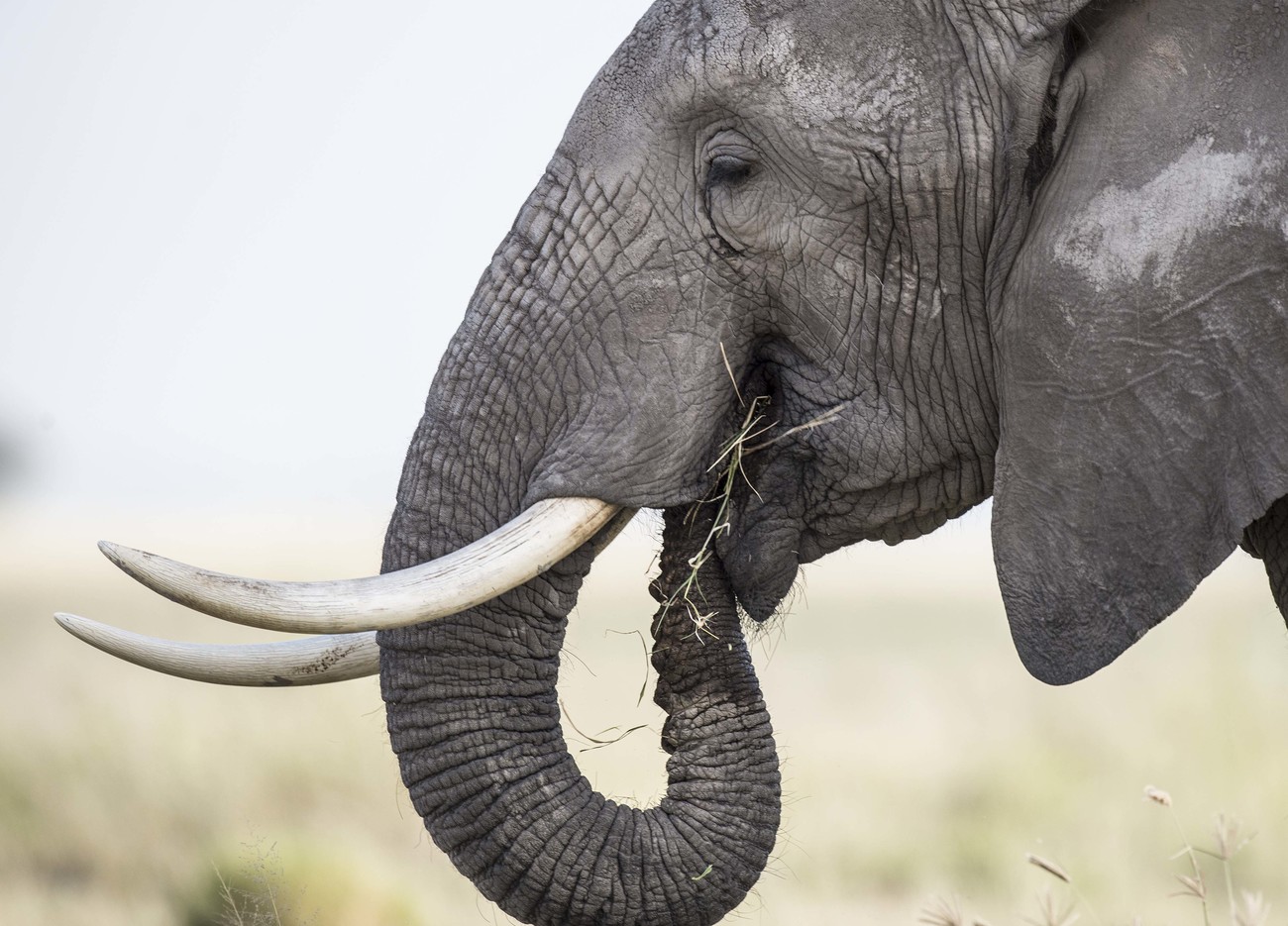The demand for ivory to make decorative items, jewelry, and trinkets is pushing elephants to the brink of extinction, creating a sinister cycle. As elephants become increasingly rare as a species, ivory trade becomes even more profitable, which then fuels more rampant poaching and attracts the attention of criminal syndicates around the world.
In fact, illicit wildlife trade is now believed to be as dangerous as global arms, human trafficking, and drug trafficking, not only in terms of value (totaling billions in estimated revenue) but also because it often involves many of the same offenders and smuggling routes. Wildlife trade additionally has a tremendous impact on the earth’s rich biodiversity.
Ivory stockpile destruction

Fortunately, many nonprofits and ivory trade policy experts have worked tirelessly over the last few decades to confront this problem. In 1989, a ban on international trade of ivory went into effect, leading nations around the world to seize tons of illegally trafficked ivory. But the fight is far from over. In May of 2020, D.C. lawmakers passed a law to ban the surging local market for elephant ivory and rhino horn.
However, as more information about the ecological externalities of poaching and trafficking wildlife products enters the public sphere, an increasing number of countries along the trade chain from elephant range states to ivory consumer nations have taken a stance by publicly destroying their confiscated ivory stockpiles through burning and crushing. The destruction of confiscated ivory tusks and trinkets serves a symbolic purpose: to bring attention to the fact that tens of thousands of elephants are being killed for their ivory each year.
Is it illegal to own ivory?
New regulations in the US have banned importing, exporting, and sales of ivory. But is it illegal to own ivory?
- The rules DO NOT make it illegal to own or inherit ivory.
- If you can’t prove it’s old, it is no longer legal to buy or sell a piece of ivory in the US.
Read more about the regulations and restrictions about owning ivory here.
Raising awareness and changing attitudes
In addition to joining ivory destruction events and campaigning against any future stockpile sales, IFAW routinely conducts behavior change communication campaigns in key consumer countries. Through public outreach, IFAW educates consumers about the cruelty, illegality and conservation impacts of ivory trade.
An independent study of an IFAW ivory demand reduction campaign in China showed that our customised, multi-pronged approach has been effective in reducing purchases of ivory products, as many ivory buyers are unaware of the cruelty and conservation impacts of poaching elephants.
Through media partnerships in China, Germany, France, the UK, South Africa, the Netherlands and the US, IFAW has shared its animal welfare message with millions of travelers and potential consumers of ivory.
Learn more about our work to stop the ivory trade

Over the years, IFAW has played many roles in addressing the links in the ivory chain and disrupting the movement of ivory from poacher to consumer. These roles include: actively supporting anti-poaching measures, working with the private sector, government, and local communities to fortify their response to the problem, and compiling research on wildlife trade as a whole.
Learn more about our many initiatives to end wildlife crime, or donate below to support our mission to save our elephants and end the ivory trade.
Related content
every problem has a solution, every solution needs support.
The problems we face are urgent, complicated, and resistant to change. Real solutions demand creativity, hard work, and involvement from people like you.